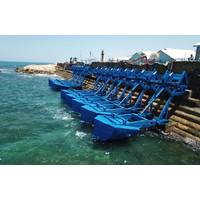Citi Builds Commodity Trade Finance as Others Retreat
Citigroup plans to double its commodities trade finance team within the next three years as it seeks to benefit from a retreat by some rival banks, the head of the business said.
Citigroup is one of the biggest players in trade finance but has been relatively small in the specific area of commodities trading. It started building a commodities trade finance team to focus on the sector in 2012.
Trade finance is a form of short-term lending or guarantee that ensures payment is made on an international shipment of goods.
Kris Van Broekhoven, global head of commodities trade finance at Citi, told Reuters he hoped to double the team's 14-strong headcount within three years and become a top five player.
"We started in energy in 2012, expanded into metals and minerals in 2013 and plan to move into agricultural commodities by the end of 2014," he added.
The bank aims to capitalise as rivals such as Morgan Stanley (MS) and JP Morgan withdraw from the business of trading physical assets such as cargoes of crude oil or metals.
"They are selling these platforms or exiting the business. Trading platforms are being picked up by producers, private equity and trading houses," Van Broekhoven said.
JP Morgan has agreed to sell its commodities trading operation to Swiss-based commodities trading house Mercuria, while Morgan Stanley has sold its business to Russian oil major Rosneft.
When these trading operations were part of investment banks, the traders could easily rely on their own banks to provide trade financing.
"But when they move, their funding changes, and they turn to the commodity trade finance banks to fund them, so that creates an expanded market for us," Van Broekhoven said.
(By Simon Falus; additional reporting by Charles Staples; editing by Jane Baird)





